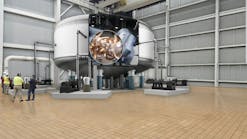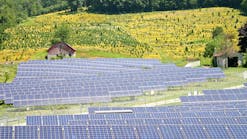It’s no secret that propane has been heating rural residential homes for decades, providing a steady heating fuel in all regions, no matter how far from distribution substations and natural gas pipelines.
What may surprise outside observers, though, is the strong role that propane is increasingly playing at a larger level in the agricultural industry in which those residents often work. Michael Newland, who is director of agricultural business development for the Propane Education Research Council, highlighted this rising use in a new EnergyTech QuickChat with Managing Editor Rod Walton.
See the full EnergyTech QuickChat about Propane on the Farm
“We use a tremendous among of energy in that sector of our economy,” Newland said. “We use one billion gallons of propane every year in the agricultural space.”
Some of that is heating livestock buildings and drying or cleaning produce. Increasingly, though, farmers are looking for propane to fill more prime power and backup resiliency goals once handled by diesel fuel.
One such producer is the Fisher Vineyards in northern California, which has expanded its use of propane to supply a boiler which heats all the hot water the farm uses for cleaning grapes and equipment, as well as powering frost prevention fans running in fields to protect crops early in the growing season.
“Their operations have to be on all the time,” Newland pointed out. “Fisher has to deal with disruption issues out there,” including wildfire risks and grid power safety power shutoffs.
“You can imagine the dollars risk on a farm like that when that kind of thing happens,” he added.
The project was so successful that PERC honored Santa Rosa-based Fisher Vineyards with its 2024 Energy for Everyone Hero Award. The winery also utilized PERC's Double Propane Farm Incentive Program to help make the implementation more feasible.
PERC is working increasingly with other farming operations which are also wanting to integrate solar power along with propane, both of which have lower carbon emission profiles than diesel.
“They are always looking at sustainability,” Newland pointed out. “They want to do the right thing. They want to produce food correctly.”
Click here to see the full EnergyTech QuickChat between Newland and Walton.







